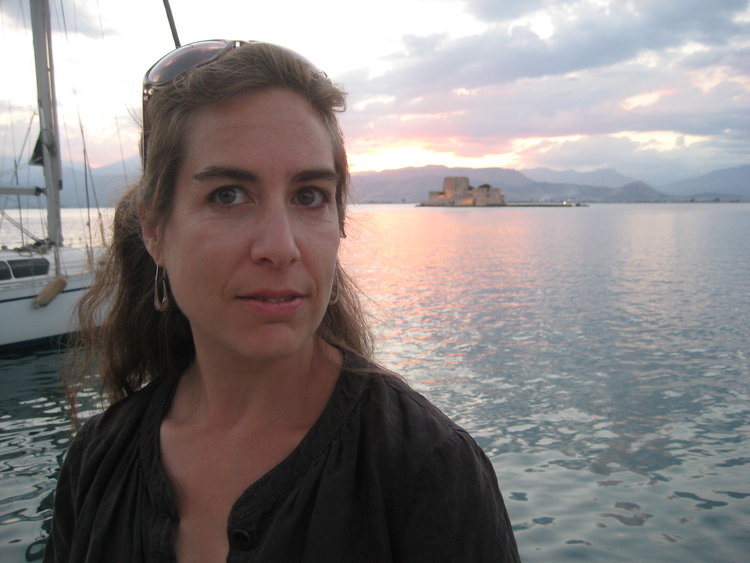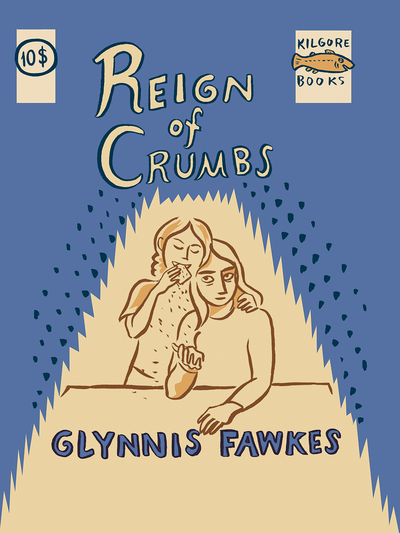You’ve been working on your comic for what probably seems like forever and finally, you feel that you are ready to share it with the world. Of course, you can always go the route of self-publishing, but that carries with it a number of obligations and expectations — printing, shipping, marketing — that you may not have the desire or the knowledge to take on. Thankfully, there are a number of amazing small press comics publishers who are constantly looking to expand their catalog and bring new voices into the world.
Unfortunately, though, as much as there are ethical publishers who want what’s best for the artists they publish, there are also bad actors who prey on the talents of young and new creators.
Part of the goal of Fieldmouse Press, the nonprofit press that publishes SOLRAD, is to advance the comics arts. We see the continued social and economic success of cartoonists as integral to that goal. SOLRAD has devoted and will continue to devote resources to this area of focus.To this end, we are running an ongoing feature at SOLRAD called KNOWING IS HALF THE BATTLE where we both feature an artist every week and ask for their advice about navigating the world of comics publishing, best practices for the business of comics, and other general advice. Today on KNOWING IS HALF THE BATTLE we’re featuring tips from GLYNNIS FAWKES.

Glynnis Fawkes is the author/illustrator of Charlotte Bronte Before Jane Eyre, Persephone’s Garden, and the minicomics Allé Egó and Greek Diary, both of which won medals at the Society of Illustrators’ MoCCA fest. She was the recipient of a Fulbright Fellowship to Cyprus where she published Archaeology Lives in Cyprus and Cartoons of Cyprus and has worked as an illustrator on archaeological projects in Greece, Cyprus, Israel, Lebanon, Syria, and Turkey. Her comics have appeared on The New Yorker.com, The Comics Journal, Popula.com, and MuthaMagazine.com (for which she was nominated for an Ignatz Award). She lives in Vermont with her husband and two children and teaches at the Center for Cartoon Studies. She is represented by Anjali Sigh at Ayesha Pande Literary.
You can find out more about Glynnis by visiting her Website, following her on Twitter or Instagram.



Glynnis Fawkes
The main thing(s) I expect from a comics publisher is/are…
Publishers vary widely in what they do and what you can expect, depending on scale. I expect my book will live alongside others they’ve published, and is (or should be) distributed, sent to
reviewers, and publicized to the best of their ability. With especially the larger publishers, this doesn’t always happen. Some comics publishers edit and lay out the book, others want you to
deliver it ready to print–it depends on your contract. Advances also depend on the size of the publisher.
I have worked with (or currently under contract with) seven different publishers (not all of comics, and not counting books I’ve illustrated or online publications), ranging from micro to macro presses–each represents a different range of audiences and reach.
My #1 advice for submitting to agents and publishers…
There is no one right way to go about finding an agent and publisher. For me, conversations rather than blind pitches have led to opportunities. Though I have pitched projects, many times.
Of course, put your best work forward. Have friends and colleagues read your submissions for clarity and purpose before sending them out. Read other cartoonists’ pitches. I’ve found that applying for grants, fellowships, and residencies have helped focus my ideas–some
applications can be very specific, and this has helped in defining projects when pitching for publication. Follow submission guidelines carefully.
Find publishers whose books you love, and talk to them. If we are ever able to come together at comics festivals again, this is a potential time to meet small press publishers and other cartoonists who have worked with those publishers. (Though often publishers at
events are also busy selling comics!) Give them your mini-comics–or, these days, send them. Follow up with a friendly email. Even if no book deal ever comes from this, a publisher may remember you, and possibly even offer a word of feedback–though don’t expect it. Put
your mini-comics in the hands of people you admire, reviewers, and small publishers not as a transaction, but part of a process: your book comes alive when someone else is reading it. They may then talk about it, hand it to a friend, etc.
Again, make the best work you possibly can, and design every aspect of your mini-comics and proposals with care. Stay friendly, open to possibility.
A sneaky red flag or shady thing I would warn new creators to look out for…
I’d google anyone I don’t know who offers some kind of publishing scheme! A guy wrote to me after a festival offering to publish my work, but it was not a personal message and I had not remembered meeting him. I would not respond to someone I did not know.
I think it can be worth it to take a lower-paid illustration job in return for ___…
A good cause, something you believe in. I’ve drawn images for my kids’ school, for BLM protest posters, and Lauren Wienstein’s series of portraits of mass shooting victims. I’d like to do more.
If a publisher/offer seemed too good to be true, here’s how I’d check it out…
By talking to friends and colleagues, research on social media and Google. An agent gave me her card at a festival, and I followed the link to the big fancy agency website, but there was no information about who they represented and what they published. Not for me.
An organization I’d go to for support if I needed advice or if something went wrong…
I’d also reach out to friends, colleagues at The Center for Cartoon Studies, and depending on what went wrong, the organizers of events and other publishers.
My best tip for promoting your work online and at cons…
At festivals, be friendly and speak to cartoonists and publishers you admire, other attendees, people whose outfits you like– even if it’s out of your comfort zone. Meeting and getting to know other cartoonists, artists, and writers IS promoting your work. Finding a mentor–someone whose career resonates with you–could be helpful too. Community often offers a dose of energy and inspiration– much needed, since so many of us work in isolation (more now than ever).
Promoting your work online is a whole other thing. This year, when all events that usually bring cartoonists together have been canceled, social media has become a lot. The comics world feels the size of a screen, and what fits in posts that scroll by. Aside from a few exceedingly popular accounts (you may be one of them), it’s easy for your efforts to be washed over by algorithms that favor cute selfies–or whatever will get the most likes. For some, Instagram IS their medium.
For me it’s a tip-of–iceberg experience, with an occasional glint of inspiration or information, the easiest thing to look at in a spare moment–but it does not beat reading a composed page of comics in a book, or online–or a whole novel. It’s not the intent–why confuse it? Still, I’m wary of depending too much on corporate media that harvest data for profit, and that show me ads between artists. Oh, come on, you’re no fun! And yet, I’ve ended up buying wool shoes.
Some say that you should treat social media as a job and post every day, share your process. Sometimes I do. But what if in order to get into the space in your head to focus on drawing and creating stories (especially now when my kids are home all the time and my work hours are short and interrupted), I can’t muster a post? Am I dead as far as Instagram’s concerned (Instagram isn’t concerned)? Do likes and followers equal success (you may be thinking, “She WOULD say that, she has like 12 followers” or so)? It takes a different sort of head than mine to throw myself into it. In other words, social media is one kind of audience–there are others. Who might they be? Your unique background, interests, affiliations create audiences. My friend, cartoonist, and baseball fan Ellen Lindner has created a series dedicated to telling stories of women in baseball history and has been going to online baseball conferences and discussion forums–there’s an audience! At festivals there have been lulls when NO ONE is interested in my work, then someone will come by who has been to Greece, or studied archaeology, and they’ll buy everything. Also, nothing beats being trampled by Bronte fans! Not to say you need some kind of obscure gimmick: comics about your everyday life may be compelling as anything.
The connections I’ve made that have helped my work–both in terms of my career and friendships (that give me the energy to go on for lord’s sake)– have occurred in person, at conventions, and through CCS. Currently, I have two book contracts and enough work for several years. The audience for these projects may differ widely from my audience on Instagram–and may include dorky kids into volcanos and adults fixated on the end of civilization. #endofcivilization!
Other ways to connect during lockdown? It’s been heartening to be able to listen and participate in live virtual panel discussions, book launches, and talks. I’ve continued to talk to cartoonists whose work I admire, and I treasure these conversations.
PS: Book and mini-comic covers are key! Create covers that give a tempting clue of the world inside to lure your future audiences. I’m sure you’re all already doing this, but my early boring covers asked me to mention it.
To take care of your health / mental health as an artist, I recommend…
Reaching out to cartoonist friends and family, also reading cartoonist diaries has helped me immensely. You’re not alone in wondering whether it’s worthwhile to pour time and energy into a comic that you don’t know if will ever make money–let alone whether it’s any good. You’re not alone in worrying about your career–that is whether you even have one, and the future of publishing now. Reading other cartoonists’ work reminds me that these are time-honored questions, and to carry on. Also talking to someone who will make you laugh. Then, dance party.
I wish someone had told me before I started working in the comics industry…
Things take time! Be patient and have faith in your own perseverance and that your work will go places, find an audience, and be published. The process of making books and being published can be slow–maybe slower for some than others! Trust in your own process–even as you’re figuring it out–and to take the time you need to draw slowly. Social media gives us the illusion that art takes no time, it sparkles, and is done in fast-motion. The comics I most admire are
dripping with the time that went into their making–you can feel the focus, intent, and pleasure the artist gave to the work–that’s dearest to my heart. Although I’ve always known that I’d like to make books, the path to get there is meandering. Bonus: now I’m old!
Also, publishers, agents, etc, who reject your work probably don’t hate you. You can talk to them again– and even keep sending stuff.
SOLRAD is made possible by the generous donations of readers like you. Support our Patreon campaign, or make a tax-deductible donation to our publisher, Fieldmouse Press, today.

Leave a Reply